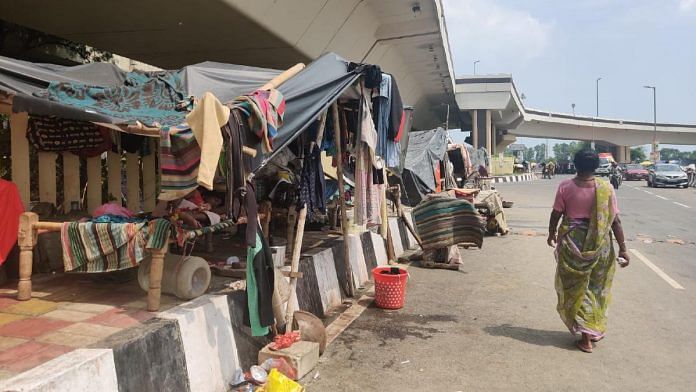New Delhi: It’s been 45 years but Binita Devi, a 57-year-old Delhi resident, can still hear those sounds of horror: The relentless mooing of cows, the painful shrieks of dogs and cats, rescue personnel shouting evacuation orders, all amid the gurgling of floodwaters entering her house.
She can’t forget the sight either — utensils and foodgrains floating around, soaked books laid to waste by the water.
Faded by time, those memories of September 1978 — the last time a rain-swollen Yamuna wreaked havoc at this scale — came rushing back to Binita Devi as the gushing waters of the river once again breached her home last week, forcing her into a relief camp just like the last time.
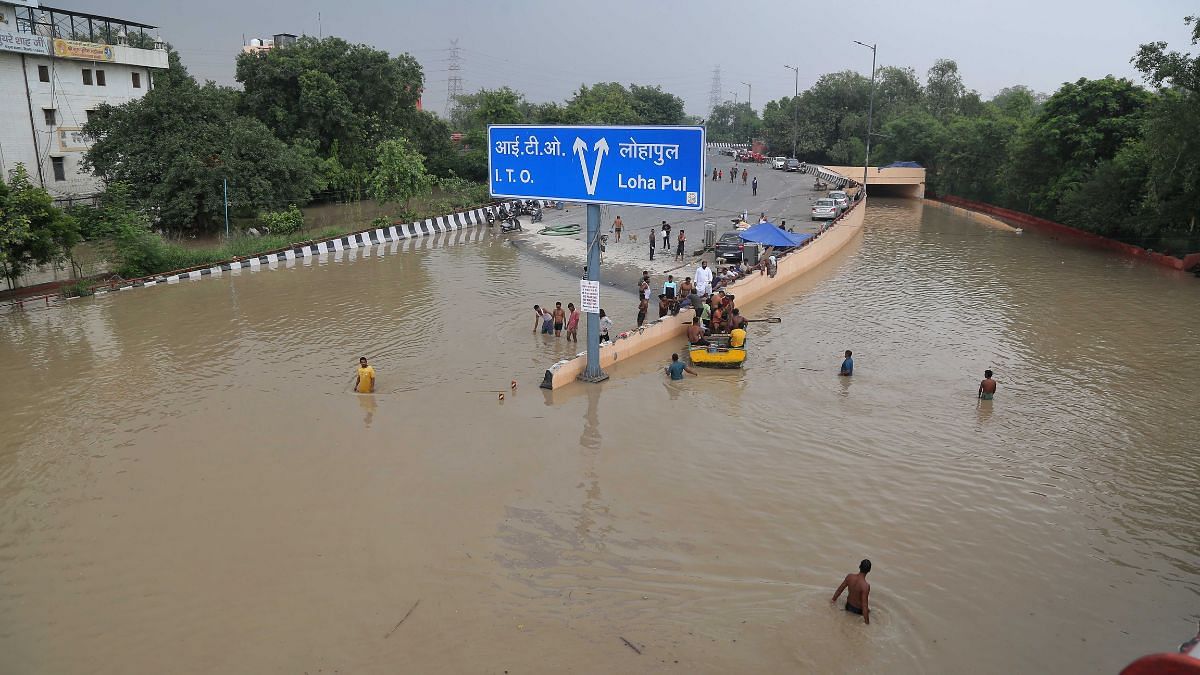
Binita is among those displaced by the flooding in Delhi last week, which has been blamed as much on the heavy showers as improper planning and administrative oversight.
Speaking to ThePrint, Binita Devi said she had to “get on top of a nearby pucca structure when the water came gushing”.
“Within minutes everything was under, damaged, things lost, savings and livelihoods gone forever,” she said. “The memories of that time had faded. They came back once in 2010 but not like this year. The sound of the sirens, the unpredictability of the situation, the fear — everything is similar to what it felt like in September 1978,” said Binita, who is currently lodged in a makeshift relief camp near Mayur Vihar Phase 1 with hundreds of others.
Like Binita, the people living here mostly reside in the Yamuna Khaddar area and do odd jobs for a living.
Also Read: Why Delhi drowned: Jammed gates of crucial ITO barrage & a Delhi-Haryana blamegame
Fresh memories, old wounds
The camp comprises white and black tents erected on a stretch along a flyover in East Delhi. On Tuesday, a fresh spell of heavy rain caused water to enter the tiny tents, intensifying their sense of displacement even as the rest of the Capital has effectively returned to normalcy.
Most of the people in the camp have been lodged here for over a week, with the few belongings they could carry out.
The residents say they are now waiting for the authorities to assess their losses and rebuild their homes.
On Wednesday, when ThePrint visited the area, civil defence volunteers were collecting the Aadhaar card details of those displaced.
But the wait is expected to be longer for people like Rajdhuai, aged in her 50s, whose ID cards got submerged in the floods. Rajdhuai said she did have soft copies on her phone, but it is not non-functional from water damage.
“Special camps will be organised by the government for those who lost documents,” said Shivani, a Class 9 student. “Things will take time but it will happen.”
Like Binita, Rajdhuai also witnessed the 1978 floods, which displaced 2.5 lakh people. “The first two days in the camp, I had nightmares. I saw [in my dreams] that the floods killed people and animals… The raging water breaking through our camps and drowning us,” she said.
In the adjacent tent, Madhu Devi, 26, tried to soothe her 5-month-old baby. The temperatures rose Wednesday and Madhu and her husband Ram Sera’s attempts to use a hand fan failed to calm the child, who cried incessantly.
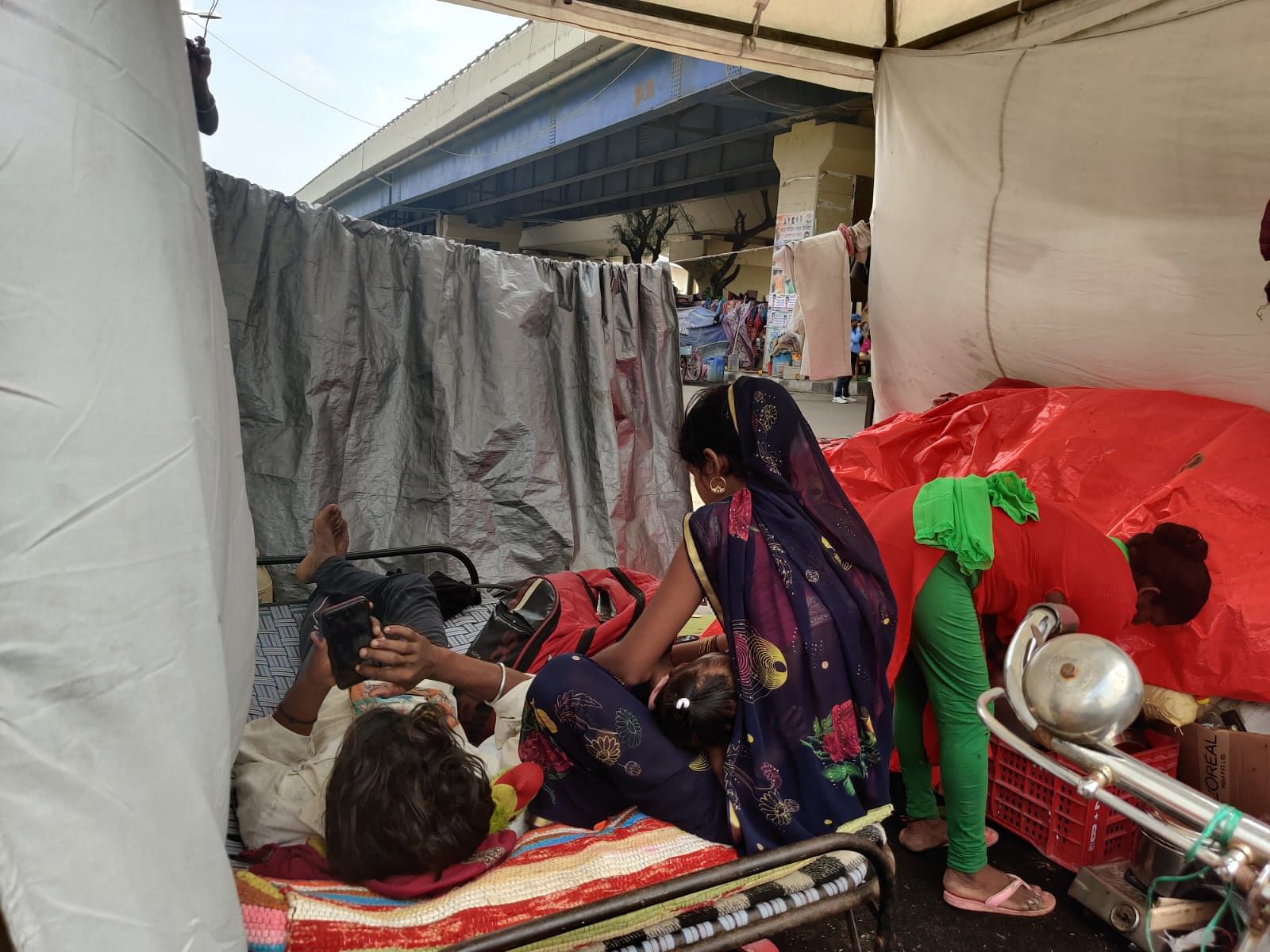
A short while later, Ram Sera left the tent to sit across the police barricades as Madhu continued to feed their son.
“Look at how he left,” she said. “He is upset that the trolley on which he sold vegetables is damaged. Now we have to wait to start getting back to work. What if the government stops giving us milk and other food items tomorrow?”
Madhu said they “couldn’t collect the savings that were in the house”. “Some gold jewellery has also been lost,” Madhu added.
Meanwhile, Madhu’s mother-in-law Mala Devi, another 1978 survivor, said she was tired of this cycle of rebuilding their home.
“Things are better now. They have given us [sanitary] napkins to use,” she said, referring to camps set up by NGOs to offer relief items. “In earlier times, in these situations, many of us would have to scramble for torn clothes and sometimes even stuff newspapers during the cycle,” Mala said.
Loss and worries
The worries of the relief camp residents span a wide gamut.
Shivani, for one, said she was worried when she would be able to return to school, adding that she lost her books in the floods.
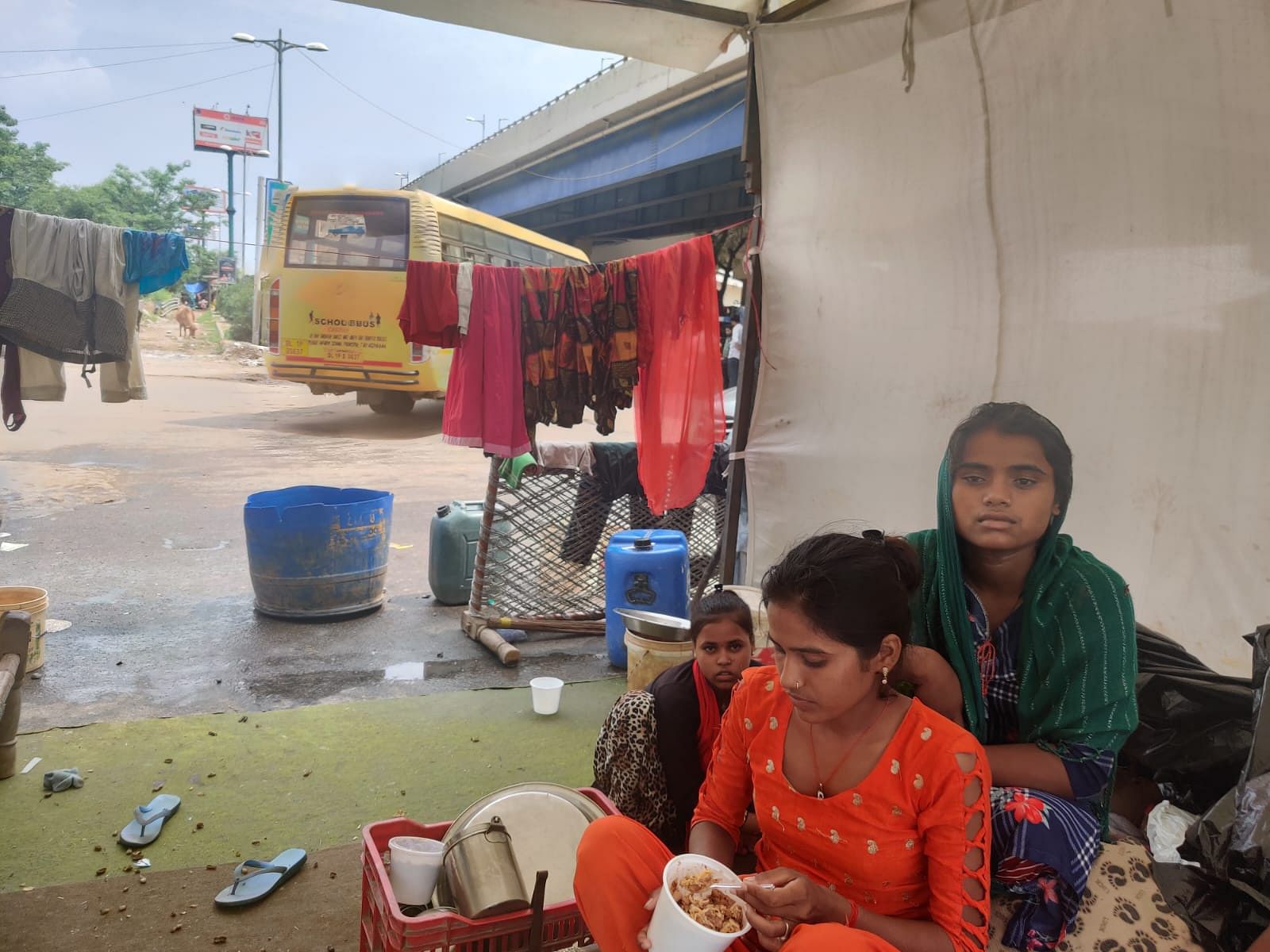
“I don’t know when I will get back the books,” she said, sitting on a charpai given by the government while opening an aluminium trunk to retrieve her notes.
“My father is a daily-wage labourer, so we won’t be able to buy the books again. I want to go back to classes and prepare for exams,” she said.
Of her family of eight, including five siblings, Shivani is the only one who is continuing her schooling.
Sunita Maurya, living at the shelter in Mori Gate, is worried about the money she lost in the flood.
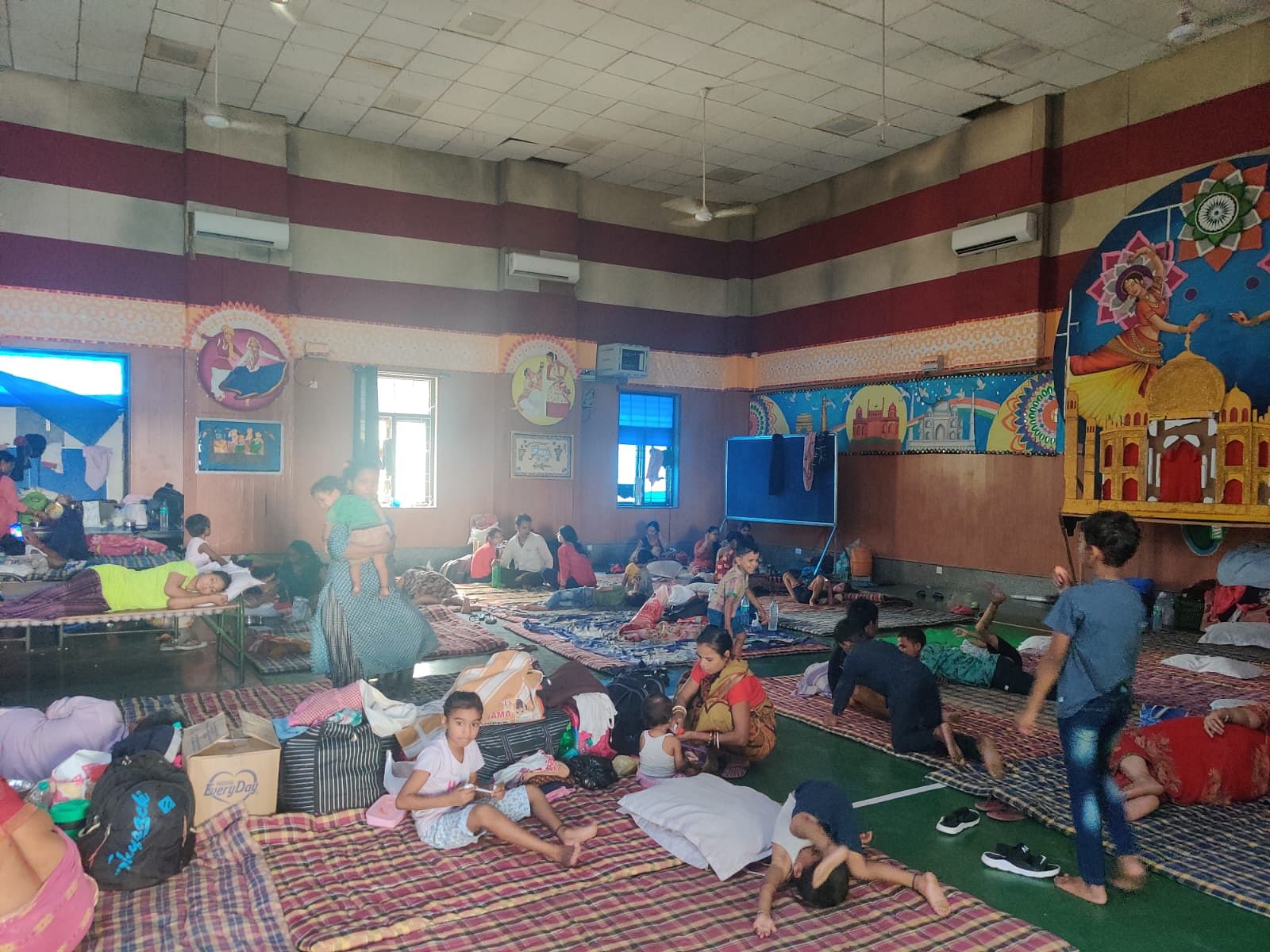
“Someone had broken into our house and taken away the money locked in the cabinet. We lost around Rs 20,000,” said Sunita, a resident of Yamuna Bazaar. “I need that money back, it’s for my father’s treatment.”
While the situation is better at this camp — housed inside Sarvodaya Bal Vidyalaya, with proper washroom facilities and fans in the hall — Sunita’s father-in-law Nina Dhar, 86, sat with tears in his eyes.
“I don’t feel like going back home,” he said. “What is home now? The house is filled with sand residue. There is no water or electricity. All the furniture is damaged. I don’t think I have the patience anymore,” Dhar added.
An earlier version of the report said the Delhi flood last week displaced 2.5 lakh people. That figure is for 1978. The error is regretted.
(Edited by Sunanda Ranjan)


